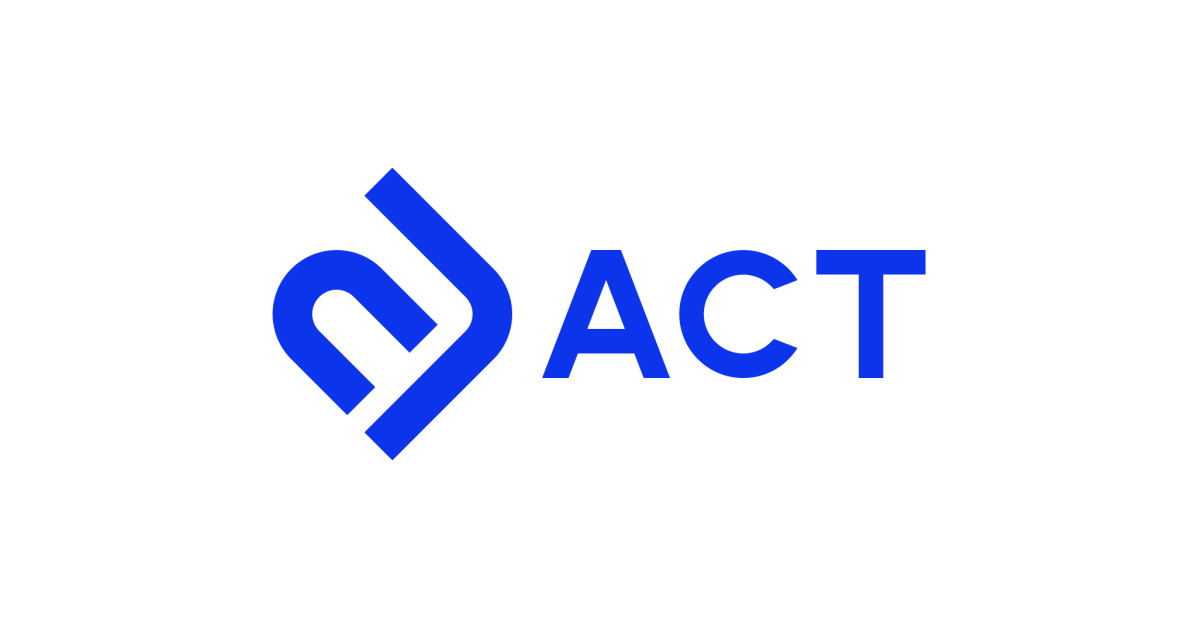Employee Stability Is Business Stability At Rhino Foods

employee-centered business practices including income advance loans, second chance hiring, employee job sharing and more.Rhino Foods
Employee stability is business stability” is a motto proudly upheld by Rhino Foods and the Rhino Foods Foundation.
To understand what this means, and the journey and mission Rhino Foods and the Rhino Foods Foundation have undertaken, I recently talked to Ted Castle, founder of Rhino Foods, and Christina Blunt, Executive Director of Rhino Foods Foundation.
An important message from our conversation is how the Rhino Foods Foundation has become a catalyst for employee-centered business practices incubated at Rhino Foods and other employers. In 2007, Rhino Foods started the Income Advance program where they helped employees get small, no questions asked loans from a local credit union for emergency situations. The relationship with the credit union meant the program further helped employees beyond the immediate emergency to establish a solid credit history and build savings. We discuss how the Foundation was created to systemically scale this program to other businesses, including the apparel company Carhartt, and how it is growing to scale other innovative workplace practices that champion employee financial stability and make good business sense.
Furthermore, Rhino Foods doesn’t just develop and test new ideas internally; it also opens its doors to external concepts and practices that promise to enhance employee welfare, for instance second chance hiring practices from companies like Greyston Bakery and Dave’s Killer Bread. Rhino also has a long history of other successful initiatives that promote stability in the lives of the employees like their Employee Exchange program, where employees are temped out to other businesses with seasonal production schedules to avoid layoffs and offer benefits continuity.
Another key aspect of our discussion was how a close connection between the Foundation and the company can make their messages more powerful and scale impact. For instance, being adjacent to the business allows the Foundation to establish stronger trust with business leaders; they can discuss shared experiences and common challenges faced by employers, which increases the receptivity of audiences. Furthermore, by providing tangible data and evidence from their own experiences, particularly in areas like employee retention and financial stability, they demonstrate the practical benefits of their initiatives.
In today’s environment of high inflation and heightened business competition, the shift to worker centric practices is not only desirable but also more necessary than ever. Companies need to think creatively about all the ways they can support employees. Read more below from my discussion with Ted and Christina, about how Rhino is living its values in this area.
Christopher Marquis: My first question is in regard to Income Advance. Can you just describe the program, how it works and how it came about?
Ted Castle, founder of Rhino Foods
Rhino Foods
Ted Castle: I’ll describe how it came about, and then turn it over to Christina for how it works. In 2007, members of the leadership team at Rhino Foods participated in a United Way training called Bridges Out of Poverty. It was a learning experience for me personally, discussing different aspects of generational wealth and generational poverty. When discussing generational poverty, it was describing circumstances that were different than what I knew growing-up and experiencing.
Learning what’s scarce, what’s important, and understanding the challenges for those in poverty was insightful to me. It wasn’t that I had never thought about it, but I think there were nuances in the training that brought attention to some things that I didn’t really know or think about as often as I might have.
We then started to think about our workforce at Rhino. We have a lot of frontline workers. We started to consider that we were losing some of our best employees due to situations where they might not have access to credit or $500 in a savings account. We quickly realized the answer was, yes. Not only did we realize that, but there’s maybe something we can do about this. We went over to North Country Federal Credit Union that’s only about a mile away from us. We worked together to innovate a solution that would work for Rhino and the credit union. The income Advance Program was invented and implemented it in 6 weeks. It was a novel approach to a situation that our employees were challenged with and we could help as a business.
FoundationRhino Foods Foundation
Christina Blunt: There are a few key pillars that make Income Advance work. The first is that it is a no questions asked, no credit check, small dollar loan that is available within 24 to 48 hours. That way it is really providing an alternative to predatory lending. The second is that it’s paid back through payroll deduction, which helps to secure the loan for the bank or credit union. The third is that the interest rates are also reasonable – below what is commonly agreed upon as a non-usury rate of 36 percent. We advocate for a 20 percent cap on the loan APR based on what various participating lenders have been able to sustain.
Castle: We tell people that if done correctly, there’s no judgment. It is also important to make getting the loan frictionless. People are not afraid to walk into HR to get a loan application, if done correctly. We’ve found that, on average, about 14 percent of a workforce will actively use the program in a given year, which surprises a lot of people. A lot of people would think they might have a few people living paycheck to paycheck, but it is probably more then they expect. Also they don’t realize that higher paid salaried workers don’t have $2,000 in their savings account. Think about fixing cars and household repairs nowadays. It’s easy to get to a thousand-dollar bill or get behind on payments.
The other thing that is misunderstood is the perception that an interest rate of 18 percent is too high. That is because people with access to credit can borrow money at four or six percent. What they’re not thinking about is you and me might be able to borrow money at low rates, but people with no access to credit have nobody they can turn to. They don’t have parents or friends that can give them a loan or a savings account they can draw from. In reality, a $1,000 loan paid over 6 months is $50 of interest. When you think about it that way, all of a sudden you go, “that’s a pretty good deal for somebody that doesn’t have any way to pay for these things.”
Blunt: Once you have those key principles established then there’s a lot of great other knock-on benefits besides just getting a loan. I think that’s where the program really starts to sing. At the Foundation, we tend to advocate for using a local bank or credit union, when possible, because it helps to facilitate a good trusting relationship between the individual and a financial institution where one may not have existed previously.
As I mentioned, the loan is paid back through payroll deduction, but if they don’t opt out, in a lot of programs, they can have that deduction continue on into a savings account. Then you’re building emergency savings. In addition, for folks that don’t have credit or don’t have good credit before participating in the program, taking out a few of these loans and paying them back establishes a solid credit history. We’ve heard countless stories of people being able to go back to the lender to secure a car loan or a mortgage outside of the program as a result of their participation.
Marquis: Thank you. One quick follow-up is if you have any stats on how much you’ve loaned cumulatively dollar wise, or how many individuals you’ve loaned money too?
Blunt: Yes. At Rhino Foods alone, employees have received close to 1,200 loans valued at over $1.1 million since 2007.
Marquis: One of the things that I really like about this work at Rhino is that you had this idea and implemented a program and then created a foundation to spread it to other companies. Can you say a little bit about the work of the Foundation in spreading this practice to other companies, and some cases of how this has worked.
Castle: We had been spreading it throughout Vermont and other places just on the side. Rhino is a B Corp and wants to impact the manner in which businesses is done. Jay Coen Gilbert (cofounder of B Lab) was with me and my son Rooney on a retreat, and he’s like, “you guys really ought to spread this thing. Why don’t you start a nonprofit and really try to scale this? B Lab will help you.”
When we started a nonprofit, it took responsibility of scaling the program out of Rhino’s regular business operations. Now our nonprofit is focused on our mission to grow this program and other innovations that support financial security for workers that make good business sense.” This change only happened 4 years ago.
Blunt: It’s interesting to me that the work of the Foundation started so many years before the Rhino Foods Foundation itself. That underscores that the Income Advance program and others weren’t created to justify the Foundation’s existence but rather the success of these programs highlighted the further potential impact they could have with the right vehicle to bring them to more businesses. The work of the Foundation is really to be an advocate for workplace practices that champion employee stability.
What that looks like in practice is us going out to businesses and talking about the programs we are trying and providing tools and resources to help other employers implement the programs on their own. We also serve as a sounding board and a helping hand whenever somebody needs assistance navigating how to make these practices work for their business. Where we see that the most at this point is when we’re working with a business that wants to establish the Income Advance program but either doesn’t have existing access to a participating lender or wants to branch out to a bank that they already work with to bring them on board. Then we become much more involved and help them to establish what the program would look like for their business and go out and talk to a lender and make sure everybody is on the same page.
In terms of achievements, Carhartt is a success for a few reasons that I think are important to note. One is, of course, their size and scale. Second, Carhartt is a known brand and that confers a sense of legitimacy on the program. Third, Carhartt is the first company that we worked with to try to implement the program through a Fintech partner.
While big name-brand businesses like Carhartt are important to spreading the Income Advance program, I also think 85 plus small-medium size businesses in Vermont and four local lenders actively participating is a testament to the snowball effect that Income Advance has had in our region, and illustrative of the momentum that we’re hoping to encourage across the country.
In some ways this movement in our region says as much as a larger enterprise like Carhartt taking the program on; it’s not just an interesting benefit that one forward-thinking company is giving, rather it has the makings of a standard benefit that all employees could have access to in the future. I think this is important to highlight because it also offers a real proof of concept; Income Advance can work in all sorts of businesses, large and small.
Marquis: For either Carhartt or some other company, how do they become exposed to Income Advance? I’ve heard Ted talk about it before at conferences. Is the marketing channel mainly through people hear about it through talks, or through their networks, or some other way?
Castle: One of our advantages of our nonprofit is that we have a connection to Rhino Foods. The name Rhino Foods Foundation is a little confusing for some people, because the Ford Foundation or foundations like that are giving money out, whereas we’re trying to bring money in to grow our foundation.
When we speak to businesspeople we share why this makes good business sense. We highlight retention, reducing worker stress, and other business priorities. It’s a very powerful message because we’re not coming at it from a lender. We’re not a credit union or a bank selling one of our services. We’re a nonprofit, and we have ideas to help you with your employees. We’re coming from it with a business mindset which is unique, and it allows the business leaders to not judge us.
A lot of businesses are loaning money out themselves, which is generous but most often a nightmare. People are coming into the HR department asking for advance pay or raiding their 401 K. The HR department can now provide a program supporting a worker getting in the habit of paying off a loan, working with a financial institution, and taking responsibility to improve their credit and begin saving.
Marquis: You established the Foundation to spread Income Advance. There’s a number of other programs that have been developed. I know about Employee Exchange or other programs focused on financial stability. Can you talk a little bit more about the programs you’ve built beyond Income Advance?
Blunt: I think the important thing to stress here, too, is that these programs all predate the Foundation. Formalizing how we talk about Income Advance was the catalyst for creating the Foundation and it informed our mission statement, “to spread innovative workplace practices that champion employee financial stability and make good business sense.” As we think about the work of the Foundation moving forward, we are expanding how we think about financial stability. A loan program is one way to create financial stability but having stable employment is also often a really critical component to being financially stable.
A good example of this is the Employee Exchange program, which Rhino developed in the 1990s. Like many businesses, Rhino experiences seasonal slow-downs and is faced with the decision of how to account for surplus staffing. Rather than laying people off, Rhino establishes partnerships with other local businesses where team members can be temped out during the off season. As busy season approaches again, they bring back their existing employees that had been working out in other businesses and are fully staffed and ready to go for the busy season. Not only does this practice prevent layoffs, it also offers teams members an opportunity to recharge and re-energize by getting to experience and learn from other businesses. The Employee Exchange program allows workers to maintain stability in their employment and their benefits like health care.
More broadly, when we’re seeing something that is working really well in the business, we’re trying to stop and understand why it is working. What are we learning? What tools or resources can we develop to help other businesses implement these practices within their own business? It’s that experience that helps us to create resources that are easy for other businesses to use. We are proud of our ability to speak directly to businesses, share what we’re seeing, why it works, and the handful of things you need to think about to bring it to your own organization.
We also want to be open and transparent about the learning process. We don’t always get it right. Certainly not the first time, maybe not even a second time. And maybe what was right 10 years ago has evolved. We’re having to update and evolve our ways of working and there is much to be gained by sharing that process. There are lots of important workplace practices that support stability in the lives of workers that Rhino didn’t originate but that we are implementing, such as open hiring and being a recovery friendly workplace, and we’re learning a lot while we’re doing it. We think that there’s a real power in being transparent about that and sharing it with others.
Castle: As we start to expand our portfolio of innovative programs, they all don’t need to be originated from Rhino. We certainly don’t have a lock on all great ideas. There are companies that are doing things a lot better than us. If we hear of something that is in the realm of financial security for workers that make good business sense, then we want to promote it. We want to understand it. We want to try to help scale it.
If you think about Rhino the business as being a little bit of an incubator lab, we can do that. The same is true for other businesses. In the future we want to have more programs in our toolbox that fit our mission that we can help scale?
Marquis: Can you say a little bit about more about that incubator role? Maybe there’s an idea from another business or the Foundation, and then how you try it out inside of Rhino. Can you share an example that shows that process?
Castle: Greyston’s open hiring and Dave’s Killer Bread’s second chance hiring are examples of an innovated approach of hiring folks without looking at background checks. Rhino was doing it informally quite a while ago and then learned from these two companies how to formalize the program we now call inclusive hiring. This is a program our foundation will be helping other businesses implement..
Blunt: To touch on what Ted was saying in terms of the incubation at Rhino. The Foundation’s relationship with Rhino is great for gaining insight into the things that other companies need to be thinking about before implementing a program, for example, around change management or internal communication. All the lessons that Rhino learns along the way allow us to help others navigate a path forward that makes the most sense for their individual business.
Marquis: Great. The other aspect of having this close connection between the foundation and the company and Ted going into room with businesspeople is that you can speak their language, and you can say with credibility how it works and the benefits the workers, the employees the business can see. Is there any more around this unique aspect you have as a foundation where you can really talk to a business leader like a business leader, which makes the message much more powerful?
Castle: I think when these workplace practices or culture ideas come into play, there is a “show me the data” or “show the ROI” mindset.
If someone asks, how does it affect retention? We can provide the numbers. We have found it even more compelling to tell personal stories. The stories provide evidence that the programs work. The stories are usually the reason that people change their minds. We have enough data to pass the test. We’ve got the stories that make a compelling argument. Most know these stories inside their business. They just choose to ignore them.
Blunt: One of the things that was striking to me when I joined the Foundation and got to sit in on some of these first meetings with Ted and other local business leaders to talk about the Income Advance program, was the immediate sense of ease in the room. I think that it is crucial to understand that we’re not trying to sell something. We’re not a benefits broker. Knowing that immediately establishes trust in the room. And it goes a long way. We’re not asking people to do this and then give us a kick back on the number of subscriptions that local lenders get. It’s really and truly just because we think it’s powerful and it seems like a shame for everyone to not be doing it. That is something that is unique to the Foundation and the philosophy that drives Rhino Foods.
Follow me on Twitter or LinkedIn. Check out my website.
I am the Sinyi Professor of Chinese Management at Cambridge’s Judge Business School. I research and write about how businesses are creating a more sustainable and equitable economic system. Prior to joining Cambridge, I taught at Cornell for 6 years and before that, Harvard Business School for 10 years, where I developed an award-winning course on Social Entrepreneurship. I have authored over 20 peer reviewed academic articles and over 50 Harvard business cases on topics related to sustainable business, earning awards for scholarly achievement from the Academy of Management and the American Sociological Association.
Read MoreRead Less



